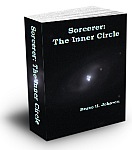<--previous in series next in series-->
A couple definitions I use here:
Print – Either hard-copy, electronic, or both. You, the author, do almost all the marketing and and some of the distribution.
Publish – Either hard-copy, electronic, or both. You, the author, sell certain rights (such as USA hard-copy print) to a publisher who creates the books and sells them to retail stores. The stores could be Amazon, Barnes and Noble, or whoever.
Self-Publish -- Either hard-copy, electronic, or both. Instead of the large publishing houses, you can have an independent (indie) publisher do the hard-copy production. You will still have to do most, if not all, of the marketing. You can consider Amazon’s Create Space to be of this variety, since the work is available to the public but not necessarily well-marketed.
Print on Demand (POD) – A service prints and ships your hard-copy only on demand. You upload a specifically-formatted file, such as a .pdf, and cover art, and then define the rest of the publishing data. Usually there’s no cost to you, the author, to make it available. Frequently the service will also offer editorial and publicity/distribution services for an additional cost. Lulu.com is one example, there are lots more.
Vanity Press – A service which will print a minimum run of your books (usually several hundred at least) so you can store them in your garage until the bugs eat them. While the service might offer editorial and other services, it’s usually up to you to market and distribute what you’ve bought.
As little as a couple months ago, the Publish option was the measure of your success as an author; you’ve actually got your book on a bookstore shelf available to the public. You have “access” to the New York Times bestseller lists (other lists for other regions such as Canada).
No matter what method you use, you’ll have to start following the publishing industry. More and more authors are going the self-publish route in one form or another, quite often with ebooks. Especially if you have some non-fiction, you could even put them up on Clickbank.com and have others promote them as affiliates. I know Larry Brooks goes this route, although he’s got a hard-copy work scheduled for next year(?).
With the proliferation of dedicated ebook reader devices, the ebook specially formatted for various devices is an author’s choice. You can work through Amazon’s CreateSpace and get your book available both as hard-copy and as a Kindle-formatted ebook (Tell me if I’ve gotten this wrong).
The route I chose is Self-Publish and Print. The Sorcerer novels are on lulu.com if someone wants hard-copy, while I promote and immediately deliver the electronic versions from this site (see FSU Fiction). So far, several people have gotten hard-copies from lulu (they’re not cheap since they are a one-off) but many more readers have gotten the electronic versions from here.
I’m as vain as the rest; there’s 5.5 inches of the four Sorcerer novels on my bookshelf. That’s tangible proof to me of what I did. Eventually I may put them up on Amazon. Perhaps if they sell a couple thousand copies there, a “conventional” publishing house will pick them up. I’m not holding my breath.
The publishing world is really shaking out. Keep an eye on it, keep your source files flexible so you can produce just about any needed format (including the various reader formats) and decide what route you want to go.

